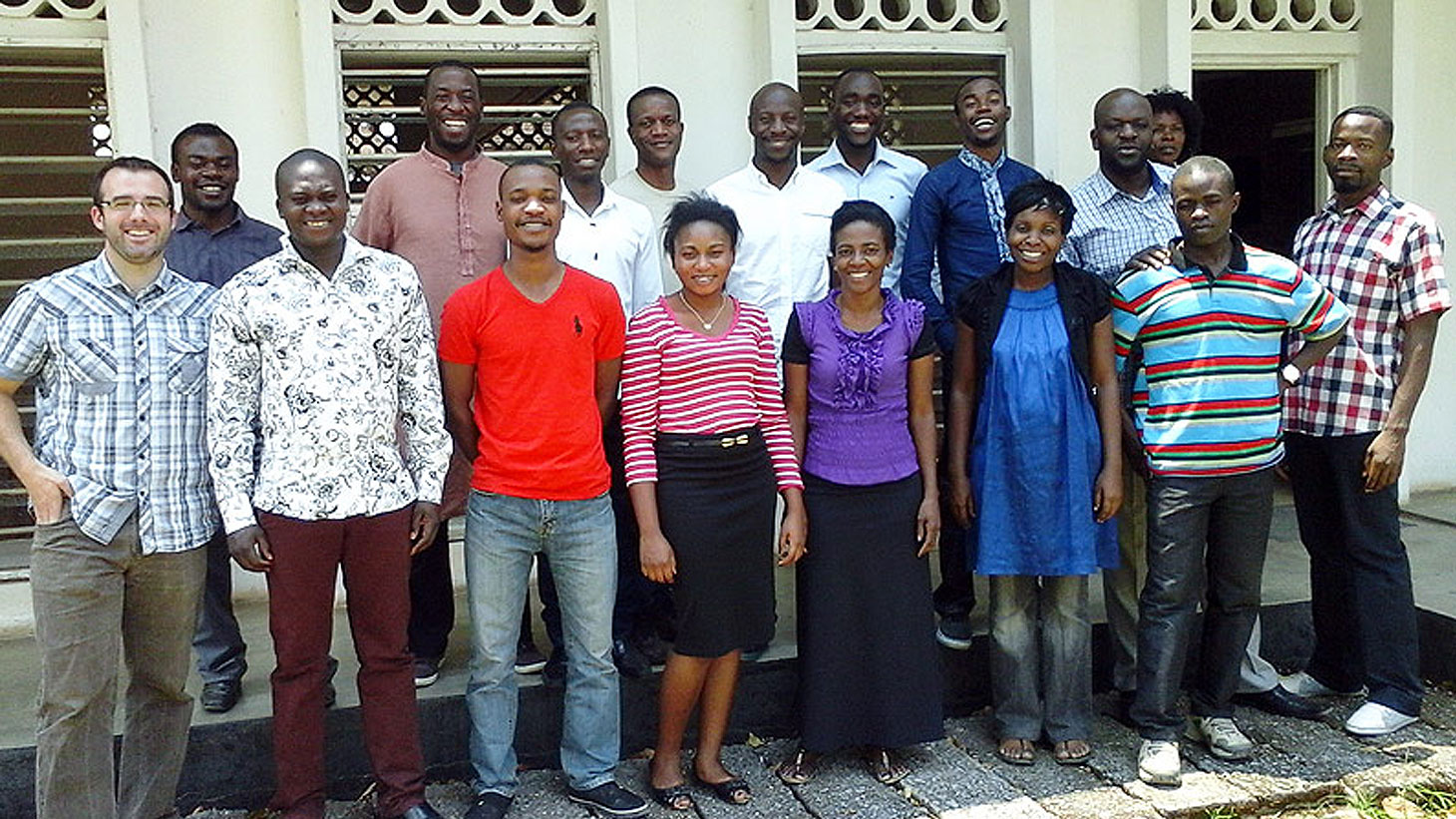Above: Tim Miller (far left) with last year’s graduating class.
At Kaniki Bible University we are training men and women from across southern Africa, most of whom will go on to lead churches and other various ministries. Whilst it is too general to say the African church is a mile wide and an inch deep, it has been my experience that there are some significant challenges that threaten the long-term strength of the church.
The biggest, in my opinion, is that of the prosperity gospel. My perspective may be partly shaped by the particular context in which I work, but I thoroughly believe this is a significant issue, and one I feel the Western church must also wrestle with more.
Chatting with my students, it becomes clear that the theology is quite nuanced: “But Tim, ‘Seek ye first the Kingdom of God and all these things will be given to you,’” my students respond when we talk about prosperity. Doesn’t God desire to bless us, and isn’t material prosperity a legitimate category of blessing? Yes, maybe, I respond, but when I see a holy God who by rights should sentence me to hell but in his infinite love and grace has reconciled me to himself through his son, the prosperity gospel is just far too small and this-worldly.
“‘But Tim, “Seek ye first the Kingdom of God and all these things will be given to you,”’ my students respond when we talk about prosperity.”
Earlier this year I was studying eschatology with our second year students, and was reminded of Karl Barth, who said that “Christianity that is not wholly eschatological has nothing to do with Christ.” I tend to think that whilst this prosperity teaching may be more obvious in my context, churches all around the world are equally tempted to lose the eschatological focus of the gospel.
I often tell my students that they can easily get a crowd by preaching what itching ears want to hear, but if they want to shepherd a strong church, one that will be able to stand firm in the face of persecution and suffering, they must preach eschatologically. They must preach that—whether or not I have a car or a house—God is still sovereign. They must preach that—whether or not my son recovers from malaria—Christ is still supreme and that there is a day coming when he will wipe every tear from our eye, when there will be no more death, no more suffering.
“They must preach that—whether or not I have a car or a house—God is still sovereign.”
I can’t help feeling that Barth’s words are incredibly apt, not only in my context, but for churches around the world—drawn by the challenge of trying to solve the problems of living in a fallen world, without sowing into eternity.

Above: Tim (right) with Blessings, a current second-year student at Kaniki.
Tim Miller graduated from Moorlands College in 2006 with a BA (Hons) in Applied Theology, having specialised in cross-cultural studies. For the following eight years Tim worked as a Pastor in Bournemouth, then relocated to Zambia three years ago. Tim currently works as a lecturer at Kaniki Bible University, near Ndola in the copperbelt region.




